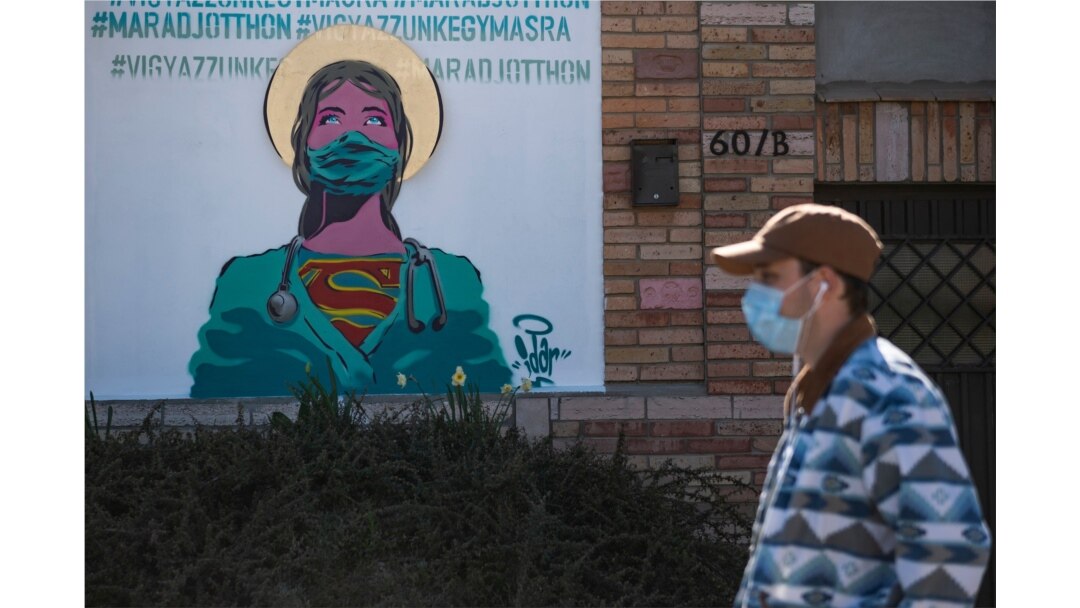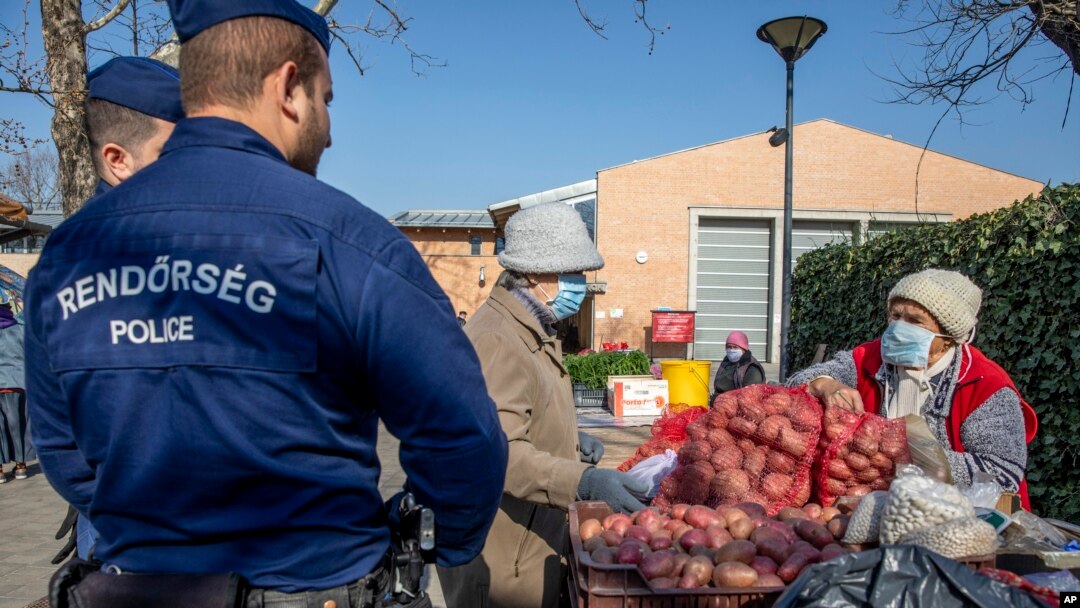Business was booming for professional event photographer Mihály Nagy back in February, as bookings started to build for the months ahead, signalling the end to the quiet winter period.
Then in March the coronavirus struck Hungary and the country went into lockdown. “All my gigs were cancelled within one or two days,” Nagy says.
With no savings to fall back on, Nagy had to find new work to survive. So, he jumped on his bike and signed up to become a cycle courier, delivering food from restaurants to customers stuck at home. “I’ve noticed that people appreciate that couriers are holding the frontline and providing them with food so they don’t have to go out,” Nagy told VOA. “And they give tips accordingly. They sometimes put the tips in a little envelope and write ‘disinfected’ on it, or they give us sanitizer gel with the tip. People have definitely been welcoming.”
WATCH: Henry Ridgwell's video report
Your browser doesn’t support HTML5
From Cycle Couriers to Fruit Sellers: Hungary’s Workers Adapt to COVID-19 Crisis
As Europe counts the cost of the coronavirus lockdown, Hungary appears to have gotten off lightly. The country has registered close to 2,100 cases and 213 deaths so far, compared to tens of thousands in the worst-hit European countries. Nevertheless, economists predict the country’s GDP will shrink by close to 10 percent - and many workers are having to adapt quickly to the dramatically changing economy.

A man wearing a face mask to protect against coronavirus walks past a graffiti with the inscription reading "stay at home and let's take care of each other" in Erd, just south of Budapest, April 10, 2020.
The demand for home deliveries has soared since the lockdown began, one of the few booming sectors of the economy. Akos Tajta, general manager of the delivery service “WOLT,” which operates in several European cities, says the company has expanded rapidly. “We onboarded over 300- to 400 restaurants in the past three weeks,” Tajta said. “We had to onboard about three- to 400 people. Today we have probably 800- to 1,000 people who applied on our waiting list.”
Hungary’s government has offered subsidized loans to Hungarian companies and funds to preserve jobs, part of a stimulus package that Prime Minister Viktor Orban says is worth up to 20 percent of the country’s entire GDP. But some companies aren’t waiting for government help.
Before the coronavirus struck, Gergely Csanda’s company specialized in staging gaming and IT events. Within days, Csanda and his colleagues rewired the entire company ecosystem – and the new business ‘Gyümölcs Plaza’ delivers fruit and vegetables across Budapest, offering free food to the most vulnerable citizens.
“We had 142 event organizing contracts for the first half of the year, all of which were cancelled within a 12-hour period,” Csanda told VOA. “We called the team together and discussed our options, and that day we began building the website and the Facebook page, designing the logo and advertising the new fruit and vegetable delivery company. Within 24 hours of everything shutting down, the team was delivering the first orders.”
Csanda says the company will revert to the IT and gaming events sector as soon as the restrictions are lifted.
Hungary’s government hopes to start gradually ending the lockdown at the beginning of May.
Gabor Ancsin and Justin Spike contributed to this story.


